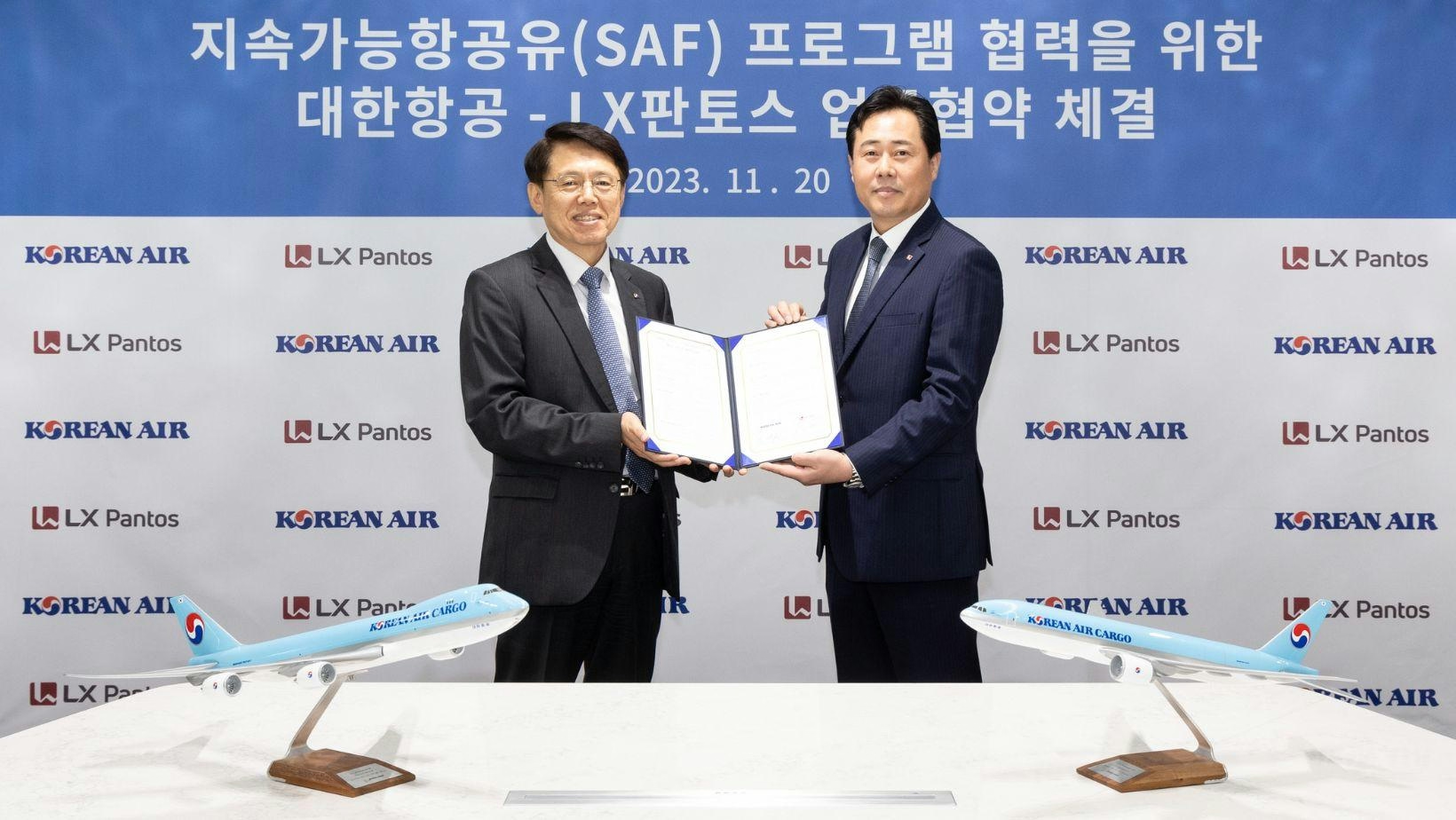AeroGenie — Your Intelligent Copilot.
Trending
Categories
Korean Air to Increase Use of Domestic Sustainable Aviation Fuel

Korean Air Expands Use of Domestic Sustainable Aviation Fuel Amid Industry Challenges
Korean Air has announced plans to broaden its use of domestically produced sustainable aviation fuel (SAF) on commercial flights, underscoring its commitment to reducing carbon emissions within the aviation sector. SAF, a biofuel derived from renewable sources such as waste, animal fats, plants, and agricultural residues, offers the potential to reduce carbon emissions by up to 80 percent compared to conventional jet fuel.
Expansion of SAF Usage on Key Routes
The airline pioneered the use of locally produced SAF in South Korea by launching a year-long trial in August 2024 on its Incheon to Haneda (Tokyo) route. Following the successful completion of this trial, Korean Air plans to extend the use of domestic SAF to additional routes, including Incheon to Kobe, Japan, and Gimpo to Osaka, through the end of 2026. HD Hyundai Oilbank will supply SAF for the Incheon-Kobe route, covering approximately 90 flights, while GS Caltex will provide fuel for the Gimpo-Osaka route. Both suppliers produce SAF from used cooking oil and have received certification from the International Civil Aviation Organization’s Carbon Offsetting and Reduction Scheme for International Aviation (CORSIA). Notably, in June 2024, HD Hyundai Oilbank became the first Korean company to export SAF to Japan.
Challenges in Scaling Sustainable Aviation Fuel
Despite these advancements, Korean Air faces significant obstacles in expanding SAF adoption. The high cost of SAF remains a critical challenge, as evidenced in Europe where mandated SAF use has added over $1 billion in expenses for airlines. Industry analysts suggest that Korean Air may also face scrutiny from environmental groups and passengers regarding the depth and sincerity of its sustainability efforts. Furthermore, competitors such as Cathay Pacific and Delta Air Lines have already integrated SAF into their operations, potentially increasing pressure on Korean Air to accelerate its transition.
Compounding these challenges, recent downward revisions in biodiesel and renewable diesel production forecasts by the U.S. Energy Information Administration (EIA) could affect the availability and pricing of SAF, posing additional hurdles for Korean Air’s expansion plans.
Alignment with Government Policies and Industry Trends
Korean Air has affirmed its intention to lead the domestic aviation industry’s transition toward carbon neutrality, emphasizing ongoing sustainability initiatives. These efforts align with new government policies, as South Korea’s Ministry of Trade, Industry and Energy recently announced plans to mandate the use of blended SAF starting in 2027. The policy aims to reduce carbon emissions from international aviation by 5 percent by 2030. Similar SAF blending mandates have already been implemented in Europe and Japan.
As the global aviation industry intensifies its focus on sustainability, Korean Air’s expanded SAF program represents a significant step forward. However, it also highlights the complex economic and operational challenges airlines face in transitioning to greener fuels.

Emirates Unveils Cabin Design for New Boeing 777X

Eighteen Years On, the Airbus A380 Remains Central to a $34 Billion Airline

How a boom in luxury airline seats is slowing down jet deliveries

Navitaire Outage Attributed to Planned Maintenance

DigiYatra Debuts Outside Aviation at India AI Impact Summit

Vietnam Orders Strengthen Boeing’s Commercial Outlook

Airbus Signals Uncertainty Over Future A400M Orders

JobsOhio Awards $2 Million Grant to Hartzell Propeller for Innovation Center

Collins Aerospace Tests Sidekick Autonomy Software on YFQ-42A for U.S. Air Force CCA Program

How the Airbus A350-1000 Compares to the Boeing 777
